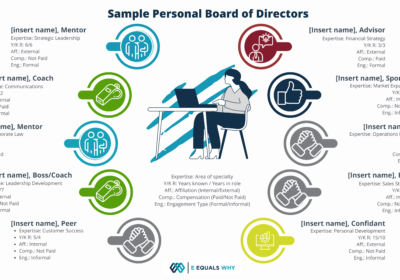It's Not Optional!
When people tell me they hire strong leaders who are self-directed and they don’t need a formal leadership development program, I call BS. According to a 2022 Gallup article, nearly 7 in 10 employees worldwide are either not engaged or are actively disengaged in their job. They lack passion for their roles and don’t care to innovate, create, or put anything more into their jobs than the bare minimum. Leaders bear the responsibility to change that statistic.
However, as reported by CareerBuilder, 58% of managers have never received formal leadership training. That means nearly 2/3 of your management team is relying on their own research, perhaps mirroring the behaviors of one of their previous bosses (who knows if they were good or bad), or simply using the same skills they learned to excel as an individual contributor.
Leadership development is a journey. It is never mastered. For some, leadership comes naturally, but for the rest, it takes deliberate focus to develop the needed capabilities and build expertise through learned experiences and practice. The best lessons are learned through adversity, either their own or the observation of others, but there is no forum or “safe space” for leaders to learn and practice specific leadership skills.
If you think about it, there is no governing body that certifies a leader, like an accountant, lawyer, or teacher. Therefore, you are relying on the training (if any) and experiences each of your leaders has encountered and hope there is synergy. A leader wields a significant amount of responsibility for delivering results for an organization and caring for the individuals they lead/manage. Would you trust the education of your child to someone who is not trained to be a teacher, or receiving continuing education? Why is it that we do not provide our leaders, who have the greatest impact on our employees, customers, and shareholders, the training and resources to be the best they can be?
Even the best leaders will tell me that they sometimes let the tactical aspects of their job take precedence over their core responsibilities, leading and growing their people. They forget to do the basics and need constant reminders. And even if you succeed in bringing together a group of managers who are good leaders, you still run the risk that their leadership styles do not align with the rest of the team, the organizational culture, or what is required for upcoming changes in the organization.
ENTER: Establishing a Leadership Development Program
Any organization that wants to build a high-performing culture, improve employee engagement, and deliver stellar results must establish a continuous and comprehensive leadership development program. It must be:
-
• centrally owned,
• directly managed,
• structured,
• consistent,
• prioritized,
• inclusive of all leaders within the organization,
• ongoing/continuous (versus one-and-done),
• connected to company values,
• aligned to deliver against the organization’s strategic objectives, and
• metric-driven to measure success.
A strong program should leverage a common leadership methodology (capabilities, tools, language, and agreements), focus on building trust, teamwork, and alignment across all levels of management, and provide a structured, ongoing leadership practice (space, time, curated content) which is available to all levels of management.
It does not require a large team or even a huge financial investment or time commitment to create this type of leadership development program. It does, however, require a champion and a plan.
This then leads to the obvious question at hand …
QUESTION: Who Owns the Leadership Development Program?
A common objection I often hear when I talk to other executives about leadership development is, “We don’t have time for leadership development.” I would submit that your organization can’t afford to NOT make time for leadership development! Think of it like this: Leadership development is an insurance policy. It’s an investment made upfront to transfer risk and avoid catastrophe on the back end.
When establishing an effective leadership development program, an accountable owner is required. There needs to be someone who wakes up every morning committed to a focused investment in the leadership team, from the CEO to the first-line manager, to deliver the outcomes for the company. It may be someone in Learning and Development, Human Resources, the Strategy office, or even an outsourced organization to establish and deliver a comprehensive Leadership Development Program.
If an organization is large enough, it should live within the Learning and Development (L&D) team. If an L&D team does not exist, Human Resources might be the next logical organization. If everyone is busy with their “day job,” it’s often best to outsource it to a third party that has the sole responsibility of elevating leaders. There are advantages, considerations, and trade-offs with each potential owner. And each company, based on its size, structure, and objectives, will have a different solution.
Honestly speaking, this is not a debate about who should own the leadership development program. The bottom line is that leadership development cannot be optional or self-directed, hoping individuals learn the right behaviors and align with the organization’s expectations. It must be centralized, scalable, managed, and consistently prioritized, touching every leader in the organization.
Leadership development is not a one-and-done training class, nor is it reserved for a select few. The best leadership development programs are on-going, lightweight, and designed to be integrated into a leader’s routine, not disrupt it. It should be a practice that consists of tools and multiple activities so that leaders have an opportunity not just to learn but make the learning practical and develop the habits that lead to success.
CONSIDER: Outsourcing Leadership Development to E Equals Why
If outsourcing leadership development seems like a practical option for your organization, either because you don’t know where to start or it tends to fall to the bottom of the to-do list, E Equals Why can not only provide the framework for success, but also the inspiration and enablement to help make it happen. Our team consists of individuals who have been in your shoes and are ready to pitch in and hold you accountable to drive the desired change. We offer:
-
• Leadership Development Bootcamps: Training to establish a common leadership language and tools to hone individual skills through assessments and coaching
• Team Building: Workshops to build trusting relationships by creating and implementing purpose statements, teaming agreements, and execution plans
• E3 Leadership Development Practice: Regular sessions to continuously inspire and enable your leadership team
• Align and Grow: Enterprise-wide programs to elevate the organization through engagement with the individual team members
Leadership is about winning the hearts of others, so they take the action necessary to achieve the desired outcomes. It is about inspiring and enabling them to take the appropriate path, overcome their fears, believe in themselves, exude MTXE (Mental Toughness and Extra Effort), and accomplish the things they crave but didn’t believe they could.



